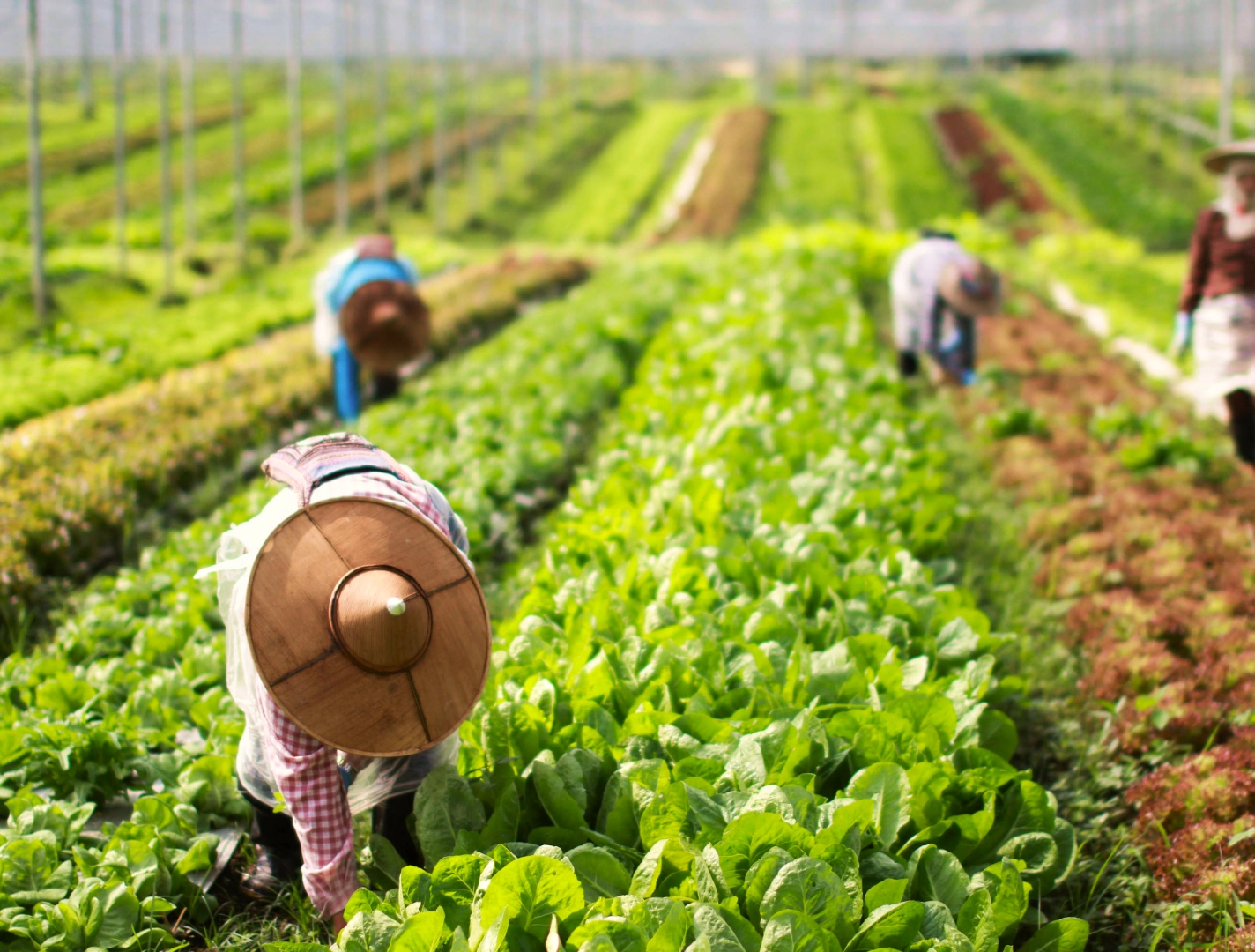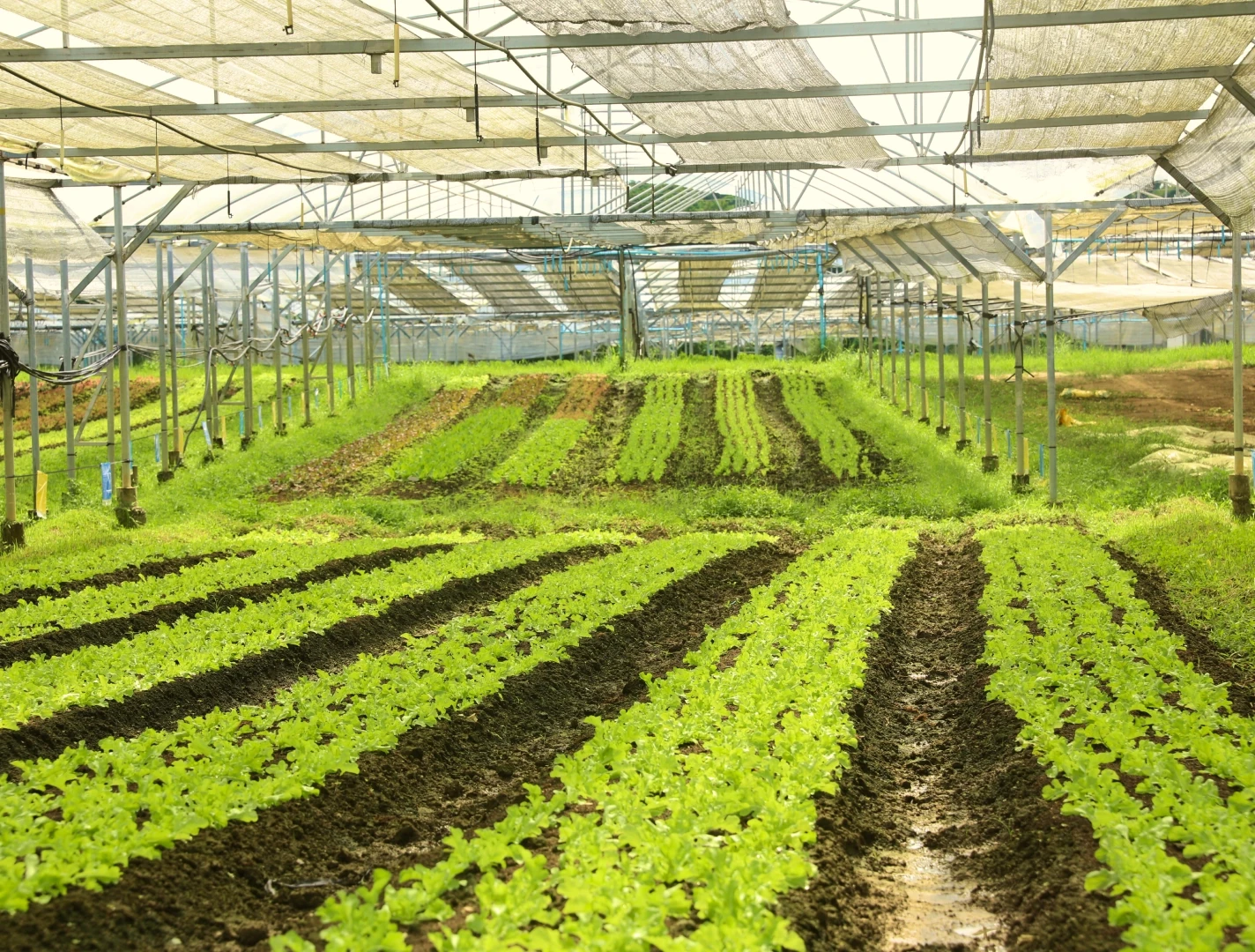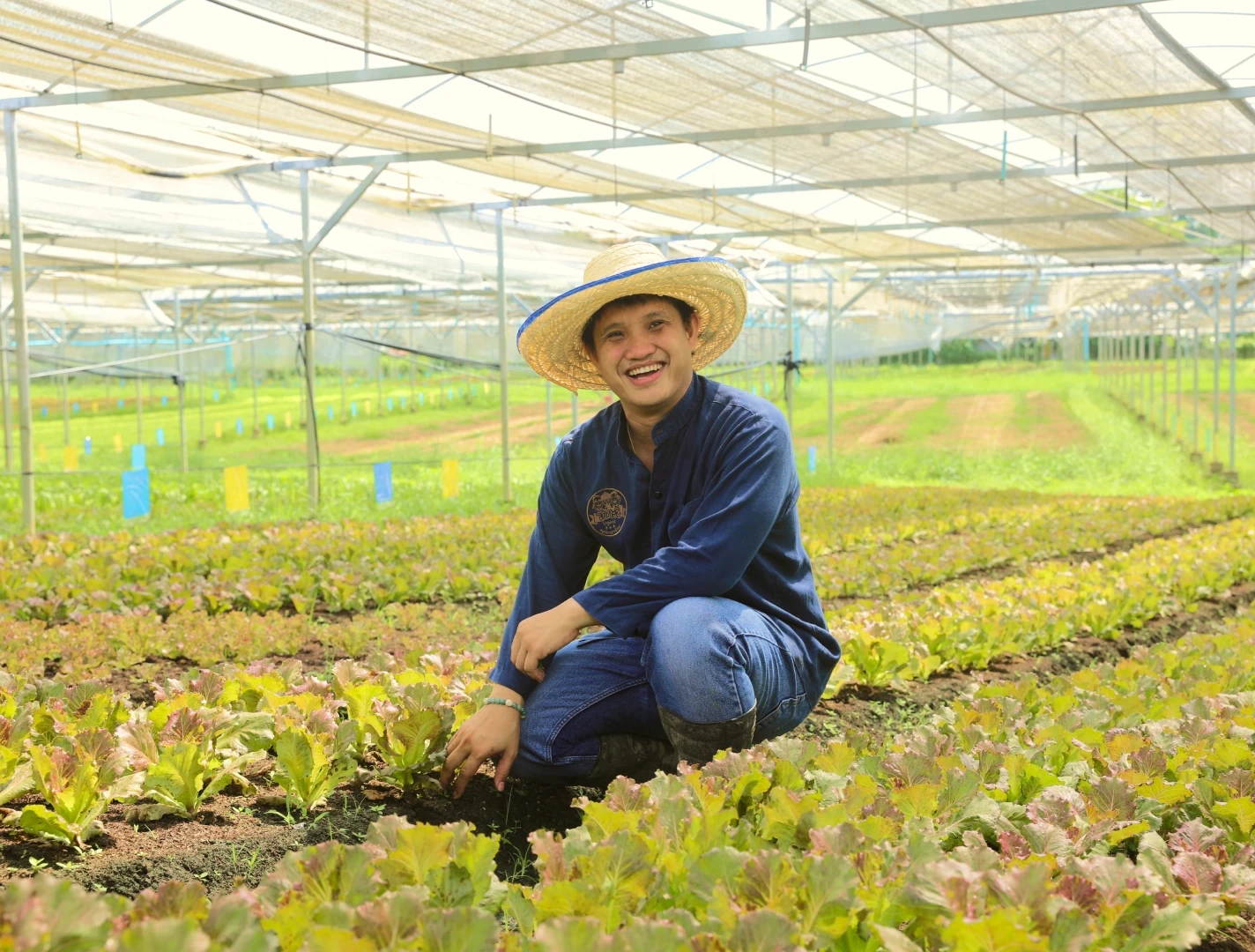
Environmental
Environmental Policy and Practices
The company is committed to conducting business that is environmentally friendly and considers the impact on the environment, giving importance to every step of the operation as follows.
- Utilize various resources to their maximum efficiency
- Manage all business processes based on care, maintenance, and preservation to reduce the impact on the environment in both the short and long term.
- Promote the use of technology to develop environmental management.
-
Promote awareness among executives and employees at all levels about conducting business that is friendly to water, air, soil, forests, ecosystems, and climate change, including but not limited to.
- Reducing greenhouse gas emissions by ensuring that vehicles used for transporting goods are in a ready-to-use condition to prevent incomplete fuel combustion.
- Efficient management of electricity and water by providing knowledge to employees and workers on the value of using electricity and water for maximum efficiency and reducing electricity and water usage.
- Reducing the use of materials, office equipment, reusing or recycling, adjusting packaging formats, promoting the use of technology in related processes, and reducing activities that cause pollution.
- Proper management and disposal of waste or garbage, so that the company can manage waste, pollutants, and pollution efficiently, and without impact on the ecosystem, soil, water, and air.
- Cooperate with local, international organizations, and communities around the business premises in managing resources and caring for the environment, adapting and mitigating the impacts of climate change effectively.
- Invest and manage business in partnership with allies, considering the reduction of environmental impact.
- Open for complaints through various channels if environmental problems are found from the company’s business activities.
การบริหารจัดการสิ่งแวดล้อม
บริษัทฯ เล็งเห็นถึงความสำคัญในการพัฒนาและขับเคลื่อนธุรกิจสู่ความยั่งยืน เพื่อการเติบโตอย่างมั่นคงในระยะยาว บริษัทฯ จึงให้ความสำคัญและคำนึงถึงประเด็นด้านสิ่งแวดล้อม สังคม และบรรษัทภิบาล ในทุกขั้นตอนของการดำเนินธุรกิจ
ทั้งนี้ บริษัทฯ มุ่งมั่นดำเนินธุรกิจอย่างมีจริยธรรมและจรรยาบรรณ ครอบคลุมตลอดห่วงโซ่คุณค่าธุรกิจและสอดคล้องกับแนวทางการพัฒนาอย่างยั่งยืนของสำนักงานคณะกรรมการกำกับหลักทรัพย์และตลาดหลักทรัพย์ (สำนักงาน ก.ล.ต.) รวมถึงแนวปฏิบัติตามมาตรฐานสากลต่าง ๆ โดยได้มีการถ่ายทอดนโยบายไปสู่ระดับปฏิบัติการในทุกหน่วยงาน และจัดทำนโยบายการบริหารจัดการความยั่งยืนครอบคลุมหลากหลายมิติ ซึ่งสามารถแบ่งออกเป็น 5 กระบวนการหลัก ดังนี้
กระบวนการที่ 1: การวิเคราะห์บริบทความสัมพันธ์ระหว่างธุรกิจและผู้มีส่วนได้เสีย เพื่อกำหนดประเด็นสำคัญด้านความ ยั่งยืนขององค์กร
กระบวนการที่ 2: การกำหนดนโยบายด้านความยั่งยืนขององค์กร
กระบวนการที่ 3: การกำหนดกลยุทธ์ด้านความยั่งยืนยั่งยืนขององค์กร
กระบวนการที่ 4: การขับเคลื่อนกลยุทธ์ไปสู่การปฏิบัติจริงในทุกระดับขององค์กร
กระบวนการที่ 5: การติดตาม ตรวจสอบ และเปิดเผยข้อมูลด้านความยั่งยืนอย่างโปร่งใส
บริษัทฯ ได้จัดทำนโยบายการพัฒนาอย่างยั่งยืนที่ให้ความสำคัญกับทั้งสามมิติหลัก ได้แก่ ด้านสิ่งแวดล้อม ด้านสังคม และด้านการกำกับดูแลกิจการ พร้อมส่งเสริมให้พนักงาน คู่ค้า และผู้มีส่วนได้เสียมีส่วนร่วมในการสร้างความเปลี่ยนแปลงเชิงบวก ทั้งในระดับองค์กรและสังคมโดยรวม
เป้าหมายด้านความยั่งยืนในปี 2567
- บริษัทฯ มีความมุ่งมั่นที่จะบริหารจัดการการใช้พลังงานไฟฟ้าให้มีประสิทธิภาพ โดยบริษัทฯ ตั้งเป้าหมายลดการใช้พลังงานต่อหนึ่งหน่วยพื้นที่ร้อยละ 5 ในปี 2567 เทียบกับปี 2566
- การใช้น้ำอย่างมีประสิทธิภาพ โดยมุ่งเน้นการลดการใช้น้ำในกระบวนการต่าง ๆ ผ่านการเลือกใช้แหล่งน้ำที่เหมาะสม เช่น น้ำบาดาล และการปรับปรุงวิธีการใช้น้ำให้เกิดประโยชน์สูงสุด
เป้าหมายด้านความยั่งยืนระยะยาว (ปี 2567 - 2572)
- บริษัทฯ มีการกำหนดนโยบายในการเพิ่มประสิทธิภาพในการใช้พลังงานไฟฟ้าอย่างต่อเนื่อง โดยตั้งเป้าหมายองค์กรในการลดการใช้พลังงานไฟฟ้าต่อหนึ่งหน่วยพื้นที่ลงให้ได้ร้อยละ 20 ภายในปี 2572 เทียบกับฐานปี 2567
การบริหารจัดการด้านพลังงานและการเปลี่ยนแปลงสภาพภูมิอากาศ
บริษัทฯ ตระหนักถึงผลกระทบจากภาวะโลกร้อนและการเปลี่ยนแปลงสภาพภูมิอากาศที่ทวีความรุนแรงมากขึ้น ซึ่งเป็นความท้าทายสำคัญที่ภาคธุรกิจต้องมีส่วนร่วมในการรับมือ
บริษัทฯ แสดงเจตนารมณ์ที่ชัดเจนในการควบคุมและลดการปล่อยคาร์บอน ผ่านการดำเนินงานที่สอดคล้องกับเป้าหมายความยั่งยืนระดับโลก เช่น ความตกลงปารีส (Paris Agreement) และแนวทางจากหน่วยงานกำกับดูแล พร้อมทั้งจัดเก็บข้อมูลพลังงานและสถิติเชิงสิ่งแวดล้อมอย่างเป็นระบบ เพื่อนำไปสู่การบริหารจัดการที่มีประสิทธิภาพ และสามารถลดปริมาณการปล่อยก๊าซเรือนกระจกได้ในระยะยาว
โครงการที่ช่วยลดปริมาณการใช้พลังงาน
1. ระบบพลังงานแสงอาทิตย์บนหลังคา (Solar Rooftop)
ในด้านการดำเนินการ บริษัทฯ ได้ดำเนินโครงการติดตั้ง ระบบพลังงานแสงอาทิตย์บนหลังคา (Solar Rooftop) ในพื้นที่ดำเนินการหลัก เช่น ฟาร์มผลิต ครัวกลาง และสาขาบางสาขา เพื่อลดการพึ่งพาพลังงานจากเชื้อเพลิงฟอสซิล และลดค่าใช้จ่ายด้านพลังงานในระยะยาว
สถิติการใช้พลังงาน (หน่วย: kWh)
| ปี 2565 | ปี 2566 | ปี 2567 | เป้าหมาย ปี 2568 | เป้าหมาย ระยะยาว | |
|---|---|---|---|---|---|
| การใช้พลังงานทั้งหมด | 9,824,993 | 14,744,674 | 17,383,046 | 16,500,000 | <16,500,000 |
| อัตราการเติบโต | - | 50% | 18% | -5% | - |
| การใช้พลังงานหมุนเวียน | 372,500 | 686,882 | 3,018,763 | 5,000,000 | >5,000,000 |
| อัตราการเติบโต | - | 84% | 339% | 66% | - |
2. โครงการที่เกี่ยวข้องกับการลดปริมาณการปล่อยก๊าซเรือนกระจก
บริษัทฯ อยู่ระหว่างการพัฒนาโครงการเพื่อเข้าร่วมในระบบ คาร์บอนเครดิต (Carbon Credit) ผ่านการลดการปล่อยก๊าซเรือนกระจกจากการจัดการทรัพยากรอย่างมีประสิทธิภาพ เช่น การใช้พลังงานสะอาด การทำปุ๋ยหมักจากพืชอินทรีย์ งดการเผาจากการทำฟาร์มอินทรีย์ และการงดการใช้สารเคมี โดยมุ่งหวังให้การลดการปล่อยก๊าซดังกล่าวได้รับการรับรองและสามารถนำไปใช้ในตลาดคาร์บอนสมัครใจ เพื่อขับเคลื่อนองค์กรสู่เป้าหมาย Net Zero อย่างเป็นรูปธรรม
สถิติการลดปริมาณการปล่อยก๊าซเรือนกระจก (หน่วย: kg CO2e)
| ปี 2565 | ปี 2566 | ปี 2567 | เป้าหมาย ปี 2568 | เป้าหมาย ระยะยาว | |
|---|---|---|---|---|---|
| การทำปุ๋ยหมักจากพืชอินทรีย์ | -21,128 | -100,904 | -294,702 | -400,000 | >-400,000 |
| อัตราการเติบโต | - | -378% | -192% | -36% | - |
| งดการเผา | -129,350 | -138,580 | -146,380 | -200,000 | >-200,000 |
| อัตราการเติบโต | - | -7% | -6% | -37% | - |
| งดการใช้สารเคมี | -2,318,895 | -2,483,899 | -2,623,339 | -3,000,000 | >-3,000,000 |
| อัตราการเติบโต | - | -7% | -6% | -14% | - |
| รวม | - 2,469,374 | -2,723,383 | -3,064,421 | -3,600,000 | >-3,600,000 |
| อัตราการเติบโต | - | -10% | -13% | -17% | - |
เป้าหมายด้านความยั่งยืนในปี 2567
- บริษัทฯ กำหนดเป้าหมายในการลดการปล่อยก๊าซเรือนกระจกร้อยละ 20-50 ภายในปี 2567 เทียบกับปีฐาน 2566
เป้าหมายด้านความยั่งยืนระยะยาว (ปี 2567 - 2572)
- บริษัทฯ มีความมุ่งมั่นในการควบคุมอุณหภูมิเฉลี่ยและให้ความร่วมมือในการปล่อยก๊าซเรือนกระจกตามความ ตกลงปารีส (Paris Agreement) เพื่อความยั่งยืนในระยะยาว บริษัทฯ จึงตั้งเป้าหมายที่จะลดการปล่อยก๊าซเรือนกระจกลงให้ได้ร้อยละ 20-50 ภายในปี 2572 เทียบกับฐานปี 2567
- กำหนดเป้าหมายมุ่งสู่ Net Zero ในปี 2050
การประเมินความเสี่ยงและโอกาสจากการเปลี่ยนแปลงสภาพภูมิอากาศ
บริษัทฯ ดำเนินการประเมินความเสี่ยงและโอกาสจากการเปลี่ยนแปลงสภาพภูมิอากาศในหลากหลายมิติ ครอบคลุมทั้งมุมมองกลยุทธ์ การดำเนินงาน การเงิน และการปฏิบัติตามข้อกำหนด ที่ครอบคลุมทั้งความเสี่ยงในปัจจุบันและที่เกิดขึ้นใหม่ (Emerging Risk)
ความเสี่ยงจากการเปลี่ยนแปลงสภาพภูมิอากาศ
| ความเสี่ยง | รายละเอียด | ผลกระทบต่อบริษัทฯ |
|---|---|---|
| ความเสี่ยงด้านกลยุทธ์ | การเปลี่ยนแปลงของอุณหภูมิ ภัยแล้ง น้ำท่วม หรือสภาพภูมิอากาศที่ส่งผลต่อคุณภาพผลผลิตทางการเกษตรและต้นทุนการผลิต |
|
| ความเสี่ยงด้านการปฏิบัติงาน | ผลกระทบจากสภาพอากาศสุดขั้วต่อกระบวนการผลิต การขนส่ง หรือฟาร์มของเครือข่ายเกษตรกร |
|
| ความเสี่ยงทางการเงิน | ราคาวัตถุดิบหรือสินค้าเกษตรผันผวนจากภาวะโลกร้อนและภัยธรรมชาติ รวมถึงผลกระทบต่อกำลังซื้อและพฤติกรรมของผู้บริโภคในช่วงที่เกิดสภาพอากาศสุดขั้ว เช่น อากาศร้อนจัดหรือฝนตกหนัก |
|
| ความเสี่ยงด้านกฎระเบียบ | การเปลี่ยนแปลงกฎหมายหรือข้อกำหนดด้านสิ่งแวดล้อม เช่น ภาษีคาร์บอนหรือข้อบังคับด้านการปล่อยคาร์บอน |
|
| โอกาส | ||
| ผลิตภัณฑ์และบริการ | การพัฒนาเมนูหรือผลิตภัณฑ์ใหม่ที่สนับสนุนการบริโภคอย่างยั่งยืน เช่น วัตถุดิบท้องถิ่น ผักออร์แกนิก หรือสินค้าคาร์บอนต่ำ |
|
| ตลาด | ขยายตลาดกลุ่มผู้บริโภคที่ให้ความสำคัญกับความยั่งยืน เช่น ผู้บริโภควัยรุ่นหรือคนเมือง |
|
การบริหารจัดการน้ำ
การเปลี่ยนแปลงสภาพภูมิอากาศส่งผลกระทบต่อปริมาณน้ำในแหล่งน้ำของแต่ละพื้นที่ ทำให้เกิดความเสี่ยงที่ปริมาณน้ำไม่พอเพียงต่อความต้องการของภาคส่วนต่างๆ บริษัทฯ จึงกำหนดแผน และการบริหารจัดการน้ำ รวมทั้งปรับปรุงประสิทธิภาพการใช้น้ำให้ดียิ่งขึ้น
เพิ่มประสิทธิภาพการใช้น้ำในกระบวนการใช้น้ำ
สถิติการใช้น้ำ (หน่วย: ลบ.ม.)
| ปี 2565 | ปี 2566 | ปี 2566 | เป้าหมายปี 2568 | เป้าหมายระยะยาว | |
|---|---|---|---|---|---|
| ปริมาณการใช้น้ำ | 127,161 | 177,266 | 231,727 | 220,000 | <220,000 |
| อัตราการเติบโต | - | 39% | 31% | -5% | - |
| ปริมาณการใช้น้ำบาดาล | 246,983 | 246,983 | 332,579 | 400,000 | >400,000 |
| อัตราการเติบโต | - | 14% | 18% | 20% | - |
เป้าหมายด้านการจัดการน้ำในปี 2567
- บริษัทฯ กำหนดเป้าหมายในการลดการใช้น้ำร้อยละ 5-10 ภายในปี 2567 เทียบกับปีฐาน 2566
เป้าหมายด้านความยั่งยืนระยะยาว (ปี 2567 - 2572)
- บริษัทฯ มุ่งมั่นบริหารจัดการลดปริมาณการใช้น้ำร้อยละ 10 ในปี 2572 เพื่อความยั่งยืนในด้านสิ่งแวดล้อมและลดความเสี่ยงเรื่องปริมาณน้ำที่ไม่เพียงพอต่อความต้องการของภาคส่วนต่าง ๆ ในระยะยาว
การบริหารจัดการของเสีย
การจัดการของเสียเป็นองค์ประกอบสำคัญของการดำเนินธุรกิจอย่างยั่งยืน ซึ่งมีบทบาทในการลดผลกระทบต่อชุมชนและสิ่งแวดล้อมในระยะยาว บริษัทฯ จึงมุ่งมั่นบริหารจัดการของเสียอย่างครอบคลุม ด้วยแนวทาง “Zero Waste to Landfill” โดยเน้นการลด คัดแยก และนำของเสียกลับมาใช้ประโยชน์ใหม่ให้มากที่สุด เพื่อลดปริมาณของเสียที่ถูกส่งไปฝังกลบให้เหลือน้อยที่สุดหรือเป็นศูนย์
โครงการที่ช่วยลดปริมาณการใช้พลังงาน
การลดขยะให้เป็นศูนย์
บริษัทฯ ยึดมั่นในแนวคิดการลดขยะให้เป็นศูนย์ หรือ Zero waste โดยการนำขยะธรรมชาติ เช่น เศษใบไม้ กิ่งไม้ เปลือกข้าวโพด แกลบ ขี้วัว ขี้เถ้า เป็นต้น ซึ่งเป็นขยะธรรมชาติจากบ้านเรือน ท้องถนน ในพื้นที่จังหวัดเชียงใหม่ รวมถึงเศษผักเหลือทิ้งจากการตัดแต่งหลังเก็บเกี่ยว และเศษขยะอินทรีย์จากร้านอาหารในสาขาเชียงใหม่ 2 สาขา มาแปรรูป ผ่านกระบวนการต่างๆ จนกลายเป็นปุ๋ยอินทรีย์เพื่อใช้ในการปลูกพืชผักในสวนของบริษัทฯ รวมถึงมีการแจกจ่ายปุ๋ยอินทรีย์ให้แก่คนในชุมชนใกล้เคียงเพื่อนำไปใช้ในการเพาะปลูก
สถิติปริมาณของเสียทั้งหมด (หน่วย: กิโลกรัม)
| ปี 2565 | ปี 2566 | ปี 2567 | เป้าหมาย ปี 2568 | เป้าหมาย ระยะยาว | |
|---|---|---|---|---|---|
| ปริมาณของเสียทั้งหมด | 2,186,195 | 3,113,433 | 4,741,942 | <4,741,942 | <4,741,942 |
| อัตราการเติบโต | - | 42% | 52% | - | - |
| ปริมาณของเสียไม่อันตราย | 58,734 | 57,822 | 105,140 | <105,140 | <105,140 |
| ปริมาณของเสียอันตราย | - | - | - | - | - |
เป้าหมายด้านการจัดการของเสียในปี 2567
- การลดการจัดการของเสียด้วยวีธีฝังกลบให้เป็นศูนย์ และการบริหารจัดการของเสียอย่างครอบคลุมในทุกกระบวนการการดำเนินธุรกิจ
เป้าหมายด้านการจัดการของเสียระยะยาว (ปี 2567 - 2572)
- การจัดการขยะภายในบริษัทฯ ผ่านกระบวนการ “Zero Waste to Landfill” โดยมีวัตถุประสงค์ในการนำขยะกลับเข้าสู่กระบวนการผลิตให้ได้มากที่สุด
บริษัทฯ จะดำเนินการปรับปรุงมาตรการด้านสิ่งแวดล้อมอย่างต่อเนื่อง พร้อมกับส่งเสริมให้พนักงาน คู่ค้า และชุมชน มีส่วนร่วมในการดูแลสิ่งแวดล้อม เพื่อสร้างผลกระทบเชิงบวกในระยะยาวต่อธุรกิจและสังคม
Environment Performance
Organic Farming
The main process in the company’s business operations is the cultivation of vegetables, fruits, and edible flowers to be used as raw materials for cooking and various products of the company. The company uses organic farming processes to grow all types of vegetables and is committed to the company’s vision, which is “We are committed to walking on an organic path that is good for us and society.”

Zero Waste
The company is committed to the concept of reducing waste to zero, or Zero Waste, by using natural waste such as leaves, branches, corn husks, compost, cow dung, ash, etc., which are natural waste from households and streets in Chiang Mai province, as well as leftover vegetables from trimming after harvesting, and organic waste from restaurants in 2 branches in Chiang Mai, to transform through various processes into organic fertilizer for use in planting vegetables in the company’s garden. In the years 2021-2023, the company converted approximately 1,000-2,000 tons of natural waste into organic fertilizer per year.

Solar Panel Installation
The company considers the use of clean energy in its operations, by installing and setting up solar energy systems on the roofs of the company’s greenhouses, central kitchen, and restaurant in Chiang Mai province, to be used as renewable energy in various processes of the company.
Project To Promote Prevention And Solve Smog Problems In The Northern Region
The company recognizes the importance of the aforementioned problem and wants to support the prevention and resolution of the problem at its root cause, by campaigning to raise awareness among community members about the dangers of smog and pollution, and reduce forest and agricultural burning to solve the smog problem in the long term. The company has collaborated with CSE in organizing various activities as follows.



Build Weirs and Reforest Upstream Areas Project
The company has continuously supported activities of reforesting upstream areas and building weirs in various areas in Chiang Mai province, to restore upstream forest areas and build weirs to slow down the water speed to prevent flood problems. It also allows for the storage of water for consumption and agricultural use to address drought problems.

The Plant Coffee Preserve Forests Reduce PM 2.5
In the second quarter of 2024, the company initiated a project to support organic coffee cultivation for the community in Ban Pang Hin Fon, Mae Chaem District, Chiang Mai. This project will help increase the community’s income, as coffee is a high-value cash crop with a broad market both domestically and internationally. Additionally, organic coffee farming reduces the use of chemicals and promotes sustainable use of natural resources within the community. Moreover, it helps reduce forest burning and air pollution, including PM 2.5.
The company has not yet compiled data on current greenhouse gas emissions. However, the company is in the process of planning and studying methods for assessing greenhouse gas emissions resulting from its business operations. This includes hiring a certified verifier for the organization's carbon footprint, registered with the Thailand Greenhouse Gas Management Organization (TGO), to analyze the amount of greenhouse gas emissions from the company's various activities. The company expects to prepare reports and verify the data to apply for certification of the greenhouse gas emissions report according to the TGO guidelines and in compliance with the international ISO 14064-1 standard by 2026.


